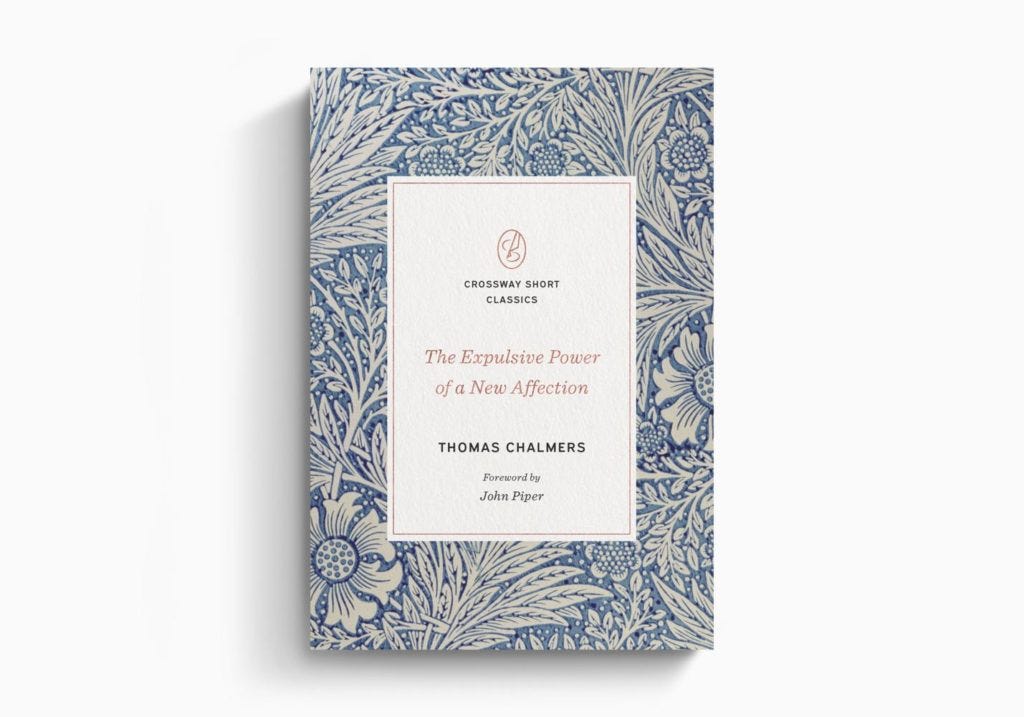Thomas Chalmers and the Need for a New Affection
Jonathan Edwards is perhaps the Christian theologian who has spoken in greatest detail about the affections—with his theology of the affections captured in its mature state in Religious Affections. For a shorter consideration of the effect that our affections have on us, one can turn to the Scottish pastor Thomas Chalmers (1780–1847). Chalmers gave a lecture that has become a classic reading on the Christian life, now published by Crossway (where I work as an editor): The Expulsive Power of a New Affection.
Chalmers takes his cue from 1 John 2:15: “Love not the world, neither the things of the world. If any man love the world, the love of the Father is not in him.” From there, he focuses on our need for a new affection to replace our worldly affections. If someone keeps telling me that I need to stop doing certain immoral actions, that can feel ovewhelming and impossible if my heart still yearns for those things. But those feelings melt away when I replace them with a love for something even greater than what they offer. And that is what Jesus offers to us in the gospel. When we come to love the grander things of grace, the things of this world fade into the background and lose their sway over us.
Chalmers’s idea is captured most pithily in this statement:
We know of no other way by which to keep the love of the world out of our hearts than to keep in our hearts the love of God—and no other way by which to keep our hearts in the love of God than building ourselves up on our most holy faith.
Love of God—who offers far greater things than ever the world could conjure up—is the way to dislodge love of the world.
In one striking passage toward the end of the lecture, Chalmers paints a picture of how this new affection can expel affections for the world:
But if, during the time of his contemplation, some happy island of the blest had floated by, and there had burst upon his senses the light of its surpassing glories and its sounds of sweeter meolody—and he clearly saw that there a purer beauty rested upon every field and a more heartfelt joy spread itself among all the families; and he could discern there a peace and a piety and a benevolence that put a moral gladness into every bosom and united the whole society in one rejoicing sympathy with each other and with the beneficent Father of them all; and could he further see that pain and mortality were there unknown; and above all, that signals of welcome were hung out, and an avenue of communication was made for him—perceive you not that what was before the wilderness would become the land of invitation, and that now the world would be the wilderness?
Dislodging our hearts from the world is best done by devoting our hearts to the beauty and wonder of the society of God, the place of greatest happiness and joy. This captures the essence of Chalmers’s message, which he expands on in his Expulsive Power.
Chalmers’s Expulsive Power is just one offering in a series by Crossway titled the Crossway Short Classics. Other titles include Jonathan Edwards, Heaven Is a World of Love; Charles H. Spurgeon, Encouragement for the Depressed; and B. B. Warfield, The Emotional Life of Our Lord.


